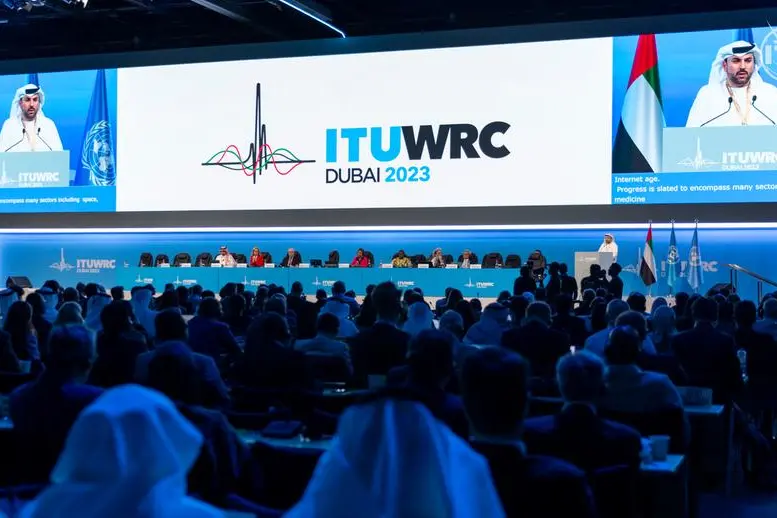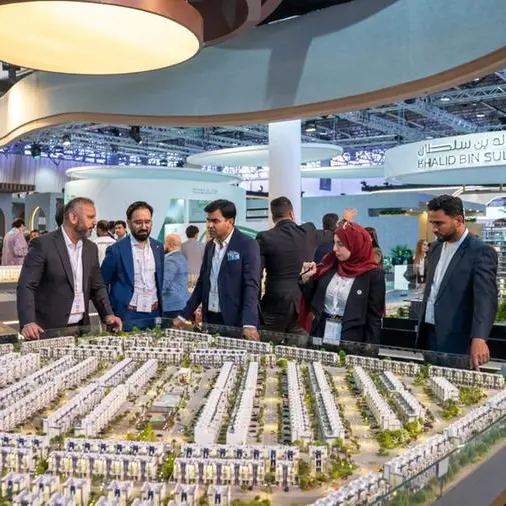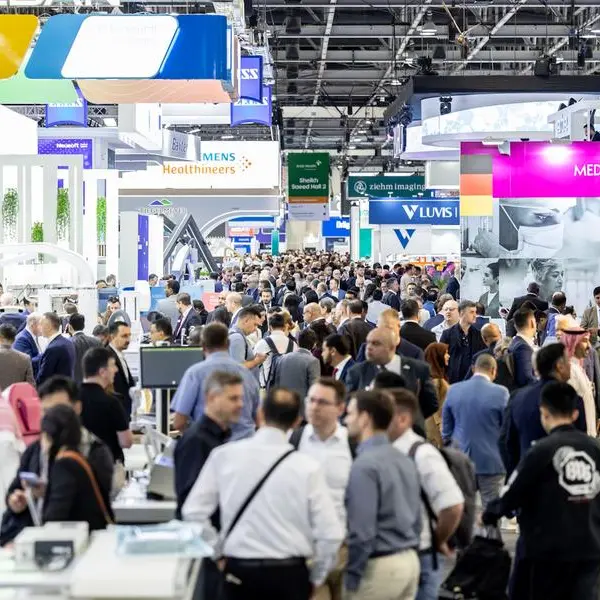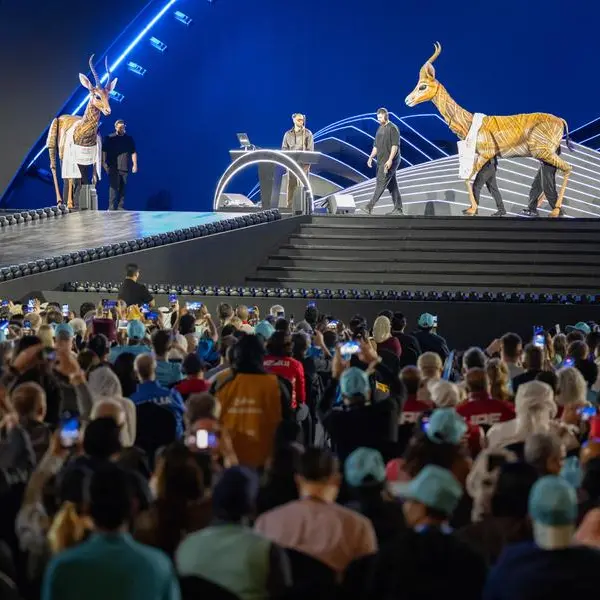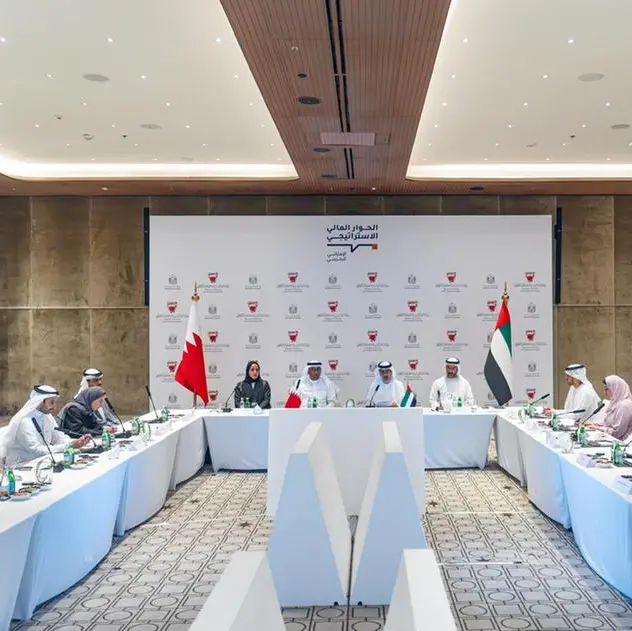PHOTO
- H.E. Talal Belhoul: “This year's conference underscored the strong collaboration among nations, emphasizing the pivotal role of international cooperation in shaping the future of the telecommunications sector. It highlighted that teamwork and a shared vision are indispensable for navigating the complexities of global digital governance.”
- Eng. Majed Al Mesmar: “Hosting the WRC-23 in the UAE reflects its position as a hub for significant global events, serving as key decision-making centers for issues critical to the future of humanity. This includes radio communications and frequency spectrum policies”
- Eng. Mohammed Al Ramsi: “The conference was a success story that reflects the UAE's global mission and its distinguished contribution to advancing international cooperation in all fields, including the radiocommunications sector, which is the backbone of smart cities.”
UAE: The Telecommunications and Digital Government Regulatory Authority (TDRA) has officially concluded the World Radiocommunication Conference (WRC-23), hosted by the UAE at the Dubai World Trade Center from November 20 to December 15, 2023. The conference had a crucial role in reviewing and updating the Radio Regulations and the international treaty governing the utilization of the radio-frequency spectrum and satellite orbits. With over 4,900 government officials from 193 countries and the participation of 900 international organizations, universities, and companies worldwide, WRC-23 marked a truly global collaboration.
The conference lasted for four weeks, marked by intense discussions among various groups and countries aimed at reaching a global consensus on enhancing the utilization of the radio frequency spectrum. The focus was on meeting the growing demands for wireless communication services, including 5G and the Internet of Things (IoT), while addressing coordination challenges and ensuring compatibility with satellite systems to prevent interference and ensure effective operation. The deliberations also encompassed the evaluation and accommodation of emerging technologies and services reliant on radio communications, such as autonomous vehicles, smart cities, and space exploration. Additionally, efforts were directed towards modernizing the Global Maritime Distress and Safety System (GMDSS) and fostering international cooperation and synergy between countries, ITU members, industry stakeholders, and other relevant organizations. The overarching goal was to achieve consensus on spectrum allocation and regulation.
Commenting on the successful conclusion of the conference, H.E. Talal Humaid Belhoul, Chairman of TDRA Board of Directors, said: This year's conference underscored the strong collaboration among nations, emphasizing the pivotal role of international cooperation in shaping the future of the telecommunications sector. It highlighted that teamwork and a shared vision are indispensable for navigating the complexities of global digital governance. All the decisions and agreements reached with the conclusion of WRC-23 will pave the way for equitable access to digital technologies, bridging divides, and opening new opportunities for all.”
Belhoul added: “The UAE, represented by TDRA, has played a crucial role in guiding the discussions of this global forum, fostering the consensuses achieved. We are committed to a future vision that recognizes the digital telecommunications sector as the foundation of global progress, and to adopting innovative approaches to spectrum management, acknowledging that the telecom sector transcends borders, and technology serves as humanity's bridge to prosperity.”
In turn, commenting on the conclusion of the conference, H.E. Eng. Majed Sultan Al Mesmar, TDRA Director General, said: “Hosting the WRC-23 in the UAE reflects its position as a hub for significant global events, serving as key decision-making centers for issues critical to the future of humanity. This includes radio communications and frequency spectrum policies that influence numerous technological trends and strategies related to digital transformation, particularly in light of the ongoing technological breakthroughs. The UAE has earned this distinguished status through the commitment of its wise leadership to actively engage with global issues and maintain a strong presence in the international arena. The UAE’s focus on the telecom sector, evident from the early emphasis on infrastructure to its evolution into electronic and then digital governance, has played a key role in shaping its current achievements, including space exploration, digital government, and more.”
H.E. Eng. Mohammed Al Ramsi, TDRA Deputy Director General and Chairman of WRC-23, said: ” The conference has set the groundwork for a new chapter in the distinguished relationship between the UAE and the ITU, marking another success story in the UAE's global endeavors, reflecting its global mission and significant contributions to advancing international cooperation across various fields, particularly in the radiocommunications sector, which serves as the backbone of smart cities and an essential component for the success of Internet of Things technologies. Throughout four weeks of consultation, dialogue, and negotiations, we engaged in discussions touching on points of universal concern. We aimed to provide a glimpse into a world characterized by harmony, dialogue, and building bridges to reach understandings that benefit all humanity."
Al Ramsi also praised the results that emerged from the conference, and the agreements that were reached at the global level, emphasizing that they will usher in a new era in the process of human development. He said:
“We have emerged from this conference with significant outcomes that will contribute to the development of numerous radio services, serving the interests of countries, societies, and humanity as a whole. Today, countries have the opportunity to utilize the identified IMT bands to develop systems that enhance the digital lifestyle. Additionally, the facilitation of frequency bands for ground stations on aircraft and ships aims to improve communication services for travelers and workers in the aviation and maritime sector.
To keep pace with the rapid expansion of communication services through non-geostationary satellite systems, the regulatory framework for the utilization of these systems was developed during this conference. In efforts to enhance emergency response and mitigate maritime accidents, work has been undertaken to update the Global Maritime Distress and Safety System, addressing ongoing developments in this field and adapting to the evolving needs of frequency spectrum.
The ITU World Radiocommunication Conference (WRC-23), is held every four years and brings together government officials, telecommunications regulatory bodies, as well as representatives of users and major suppliers of radiocommunication services; in order to hold critical technical regulatory discussions at the global level. The conference is also a platform for presenting and discussing the latest innovations and technologies in the field of radiocommunications, and an opportunity to enhance cooperation and exchange of experiences between countries.
It's noteworthy that the UAE stands as the sole country to have hosted and chaired all major conferences and events of the ITU. It is the only country that has chaired this conference twice, in 2012 and 2023. This accomplishment is a testament to the UAE's global position in the telecommunications sector, its trusted role in regional and global coordination, its relentless efforts to advance telecommunications through collaboration with diverse partners, and its achievements in sustainable development, the adoption of modern technologies, and the enhancement of telecom infrastructure.
About TDRA:
The Telecommunications and Digital Government Regulatory Authority (TDRA) undertakes the task of supervising the telecommunications and digital government sectors in the UAE in accordance with the Telecommunications Law issued by Federal law by Decree No. (3) of 2003 and its amendments, and in accordance with Decree No. 23 issued on September 27, 2020, amending some provisions of Federal Law by Decree No. (3) of 2003 regarding the regulation of the telecommunication sector, and adding the “digital government” to the functions and name of the authority.
TDRA’s regulatory role is to ensure the provision of distinguished telecommunications services, develop the telecommunications sector, ensure the interests of the parties, apply the relevant policy and regulatory frameworks, develop human resources, and encourage research and development, to ensure the UAE’s leading regional and global position in the telecommunications sector.
In the field of enabling digital transformation, TDRA is responsible for supervising the federal digital government under Law No. 3 of 2011. Since then, TDRA has become responsible for digital transformation at the national level through two strategic goals: enhancing the smart lifestyle, and Leadership in smart technological infrastructure in the UAE.
